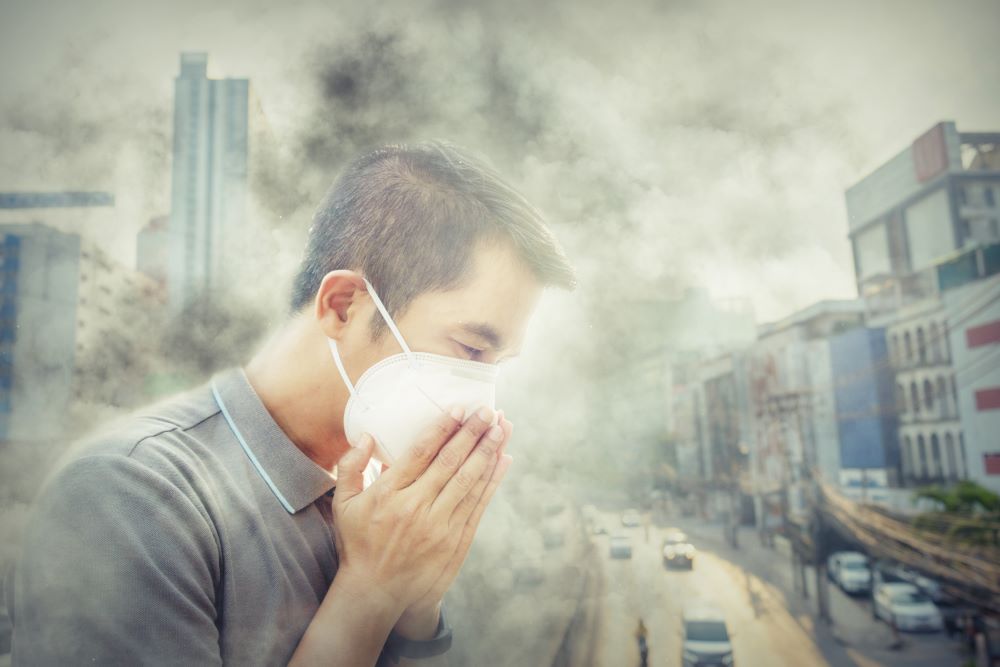By Faten Omar
KUWAIT: The Environment Public Authority (EPA) has advised citizens and residents who suffer from respiratory diseases to avoid staying in open areas for long periods, announcing air quality monitoring stations have recorded a rise in fine particulate matter above permissible limits. The authority explained this rise coincided with the change in climatic conditions in the country, with northwesterly wind speed exceeding 60 km per hour, which contributed to the rise in dust particles.
Pulmonologist Dr Ahmad Al-Makimi told Kuwait Times that fine dust particles are easily inhalable by the nose and pharynx and accumulate and take up space in the lungs, which can lead to serious respiratory problems. “This kind of weather can cause coughing, wheezing and chest tightness. Dust accumulation in the lungs may also expose you to pneumonia, silicosis and sometimes life-threatening lung cancer,” he said. He added that dust damage to the respiratory system is very serious, noting there is also damage to the skin, which will cause allergic reactions. Some types of dust contain carcinogenic chemicals that can lead to dangerous results, in addition to transmitting some infectious diseases.
Dr Makimi affirmed that people must cover their faces with a scarf when they go out in such weather. “Also, wash your face with an appropriate cleanser to get rid of dust and dirt twice a day, drink good amounts of water to help your body get rid of toxins, and nourish the skin properly to reduce damage caused by dust and pollution,” he said. “To reduce the effects of dust on the body, people have to stay indoors and avoid exposure to external dust as much as possible. Consult a specialist doctor if symptoms begin to increase, avoid prolonged work in areas with heavy pollution, and wear a facemask if working in areas exposed to heavy dust,” he added.
In 2020, the Center for Gulf and Arabian Peninsula Studies confirmed that the rate of outdoor and indoor air pollution in Kuwait has increased alarmingly, and as a result, problems related to breathing and pneumonia have increased by 94 percent since 2007. In the past years, respiratory tract infections jumped to the third most frequent and chronic symptom in Kuwait, which threatens human health, especially of children. The number of hospital admissions in young Kuwaiti adults with asthma has also increased. According to official statistics in Kuwait in 2018, infection rates increased among young people to 15 percent and among children by about 18 percent, and most of the reasons are related to air pollution.
According to a study concluded by a research team at the Arab Gulf Center, Gulf countries, including Kuwait, will face an accelerating pace of worrying environmental degradation whose symptoms and health repercussions on human and animal life may appear more clearly in the next 15 years. It is expected that air pollution rate will increase in the coming period in light of the long periods of drought and the lack of rain in the winter season.











